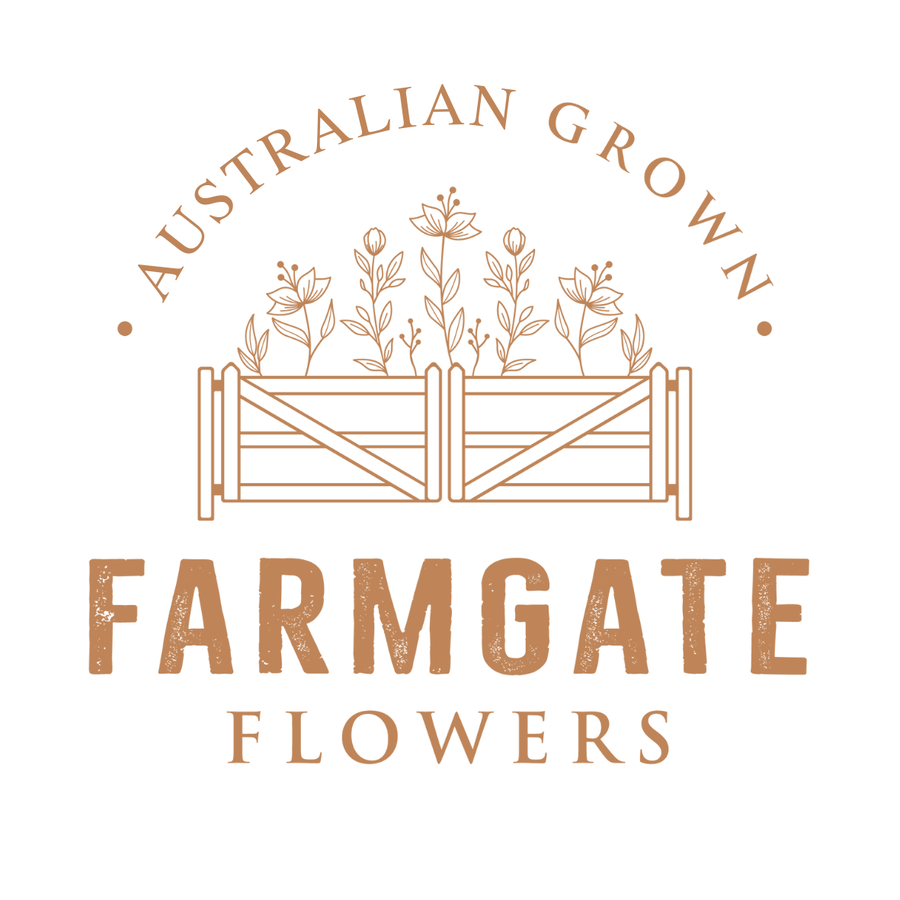“Be the change you wish to see in the world.”
I don’t often share all the driving forces behind why I started Farmgate Flowers Direct. Yes, I grew up on a flower farm in one of the most beautiful places on earth, which positioned me well to connect you to our flower farmers. And yes, I love being at The Farmers Market connecting with other like-minded small business operators and handing over flowers knowing you’re going to probably experience a whole new level of quality and freshness that you may never have experienced before. All of this gives me so much joy but there is a bigger ‘why’ beyond me and my own gratification, and even my customers. I saw so much that was happening within the industry that consumers knew nothing about, from the war on waste, biosecurity risks, chemical over-usage, labour standards, and sustainability. I want things to change not just for consumers, but growers, the industry, and the environment.
It is hard to fight the good fight alone, which is why I want to introduce you to one of the amazing women within our industry trying to forge social, economic, and political advancement within the Australian Flower Industry.
I got to sit down this week and ask Anna Jabour, CEO of Flower Industry Australia, and ask her few questions about Country-of-Origin labelling, the creation of Flower Industry Australia (FIA) and the future of the Industry.
Grab a cuppa and settle in for an interesting read because I’m pretty confident there are a few things you will read below that you had no idea about. Anna really is being the change she wants to see in the world!
Q: Can you tell us about your background and how you became involved in the flower industry?
A: I have always had a deep love of flowers and regularly bought them for years. However, I was naive about where flowers came from and thought they were grown here in Australia. When I began floristry during COVID, I found out that flowers were imported and subsequently the chemicals that were used to bring them into the country. This realisation concerned me, and I wanted to raise awareness among flower consumers and florists. Flower growers are also concerned about the high volume of imports and the biosecurity risks they bring, and consumers simply deserve to know where flowers are grown. I reached out to Flower Industry Australia to see if they were going to lodge a submission to the country-of-origin labelling review being undertaken by the federal government, and my involvement started there.
Q: What is Flower Industry Australia, and what are its priorities?
A: Flower Industry Australia is an association that grew from the vision of a small group of passionate flower industry professionals who recognised that the industry urgently needed a more unified approach. 20 years ago the flower industry was predominantly Australian grown and it’s only been in the last couple of decades that we’ve seen a significant rise in imports. This led to the closure of hundreds of businesses, of both growers and florists. It’s been very sad to hear the stories about the number of growers who just couldn’t compete with cheap imports and had to close up shop. Our priorities are to promote Australian flower growers and florists, to advocate for country-of-origin labelling, and for stricter biosecurity controls. The floristry courses through TAFE are also significantly outdated and should include more information on sustainable practices and better links to local growers.
Q: Can you explain why you are concerned about imported flowers?
A: Imported flowers can be treated with chemicals such as methyl bromide and Roundup, which are toxic to humans. It concerns me that flowers go to some of the most vulnerable in the community, including babies and the elderly, and people put them to their face quite often. Cut flowers are also a high-risk pest pathway, and while it can take more than six months to import a rose in soil, it can take less than 48 hours to import a cut rose, and less than 20% of shipments were being checked properly.
Q: What are your thoughts on country-of-origin labelling for flowers?
A: I believe it would make sense if flowers were labelled so that everyone could make an informed decision. There’s only a small number of flower importers, so it’s not a hard thing to do. We have broad support for country-of-origin labelling, including from the National Farmers’ Federation, but it's disappointing that the government has not acted on the issue. It gets frustrating, as we've seen five different ministers take on responsibility for country-of-origin labelling since 2020, including a change of government.
Q: How has Flower Industry Australia made a difference in the industry?
A: Since its formation, Flower Industry Australia has made a difference by advocating for stricter biosecurity controls and country of origin labelling. We have seen biosecurity become stricter, and shipments are being fumigated and turned away due to high pest loads. Domestic demand for Australian-grown flowers has increased by about 6% each year since FIA was formed. We also assisted the ACCC with research when they started an investigation into order gatherers and reports that some large national suppliers are making misleading representations online that they are local florists or that their business has a local presence in a suburb when that is not the case.
Q: What is your vision for the flower industry in Australia?
A: My vision for the flower industry in Australia is to have a more unified approach, with greater support for Australian flower growers and florists. I would like to see greater investment in sustainable practices and for the industry to be more aware of the impact that imported flowers can have on biosecurity and human health. I would also like to see a more up-to-date curriculum in floristry courses through TAFE with better links to local growers.



Image credit via Anna Jabour
